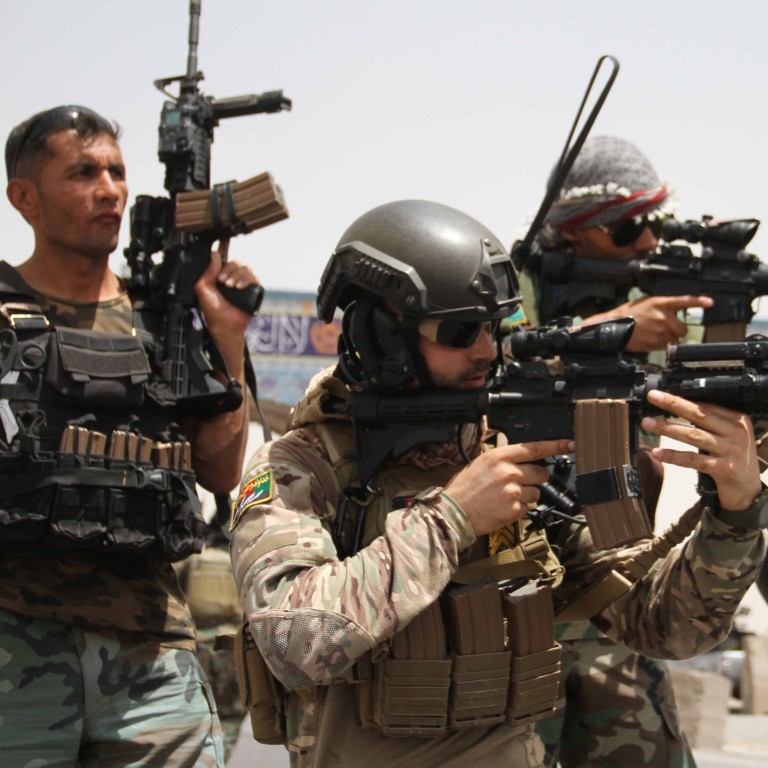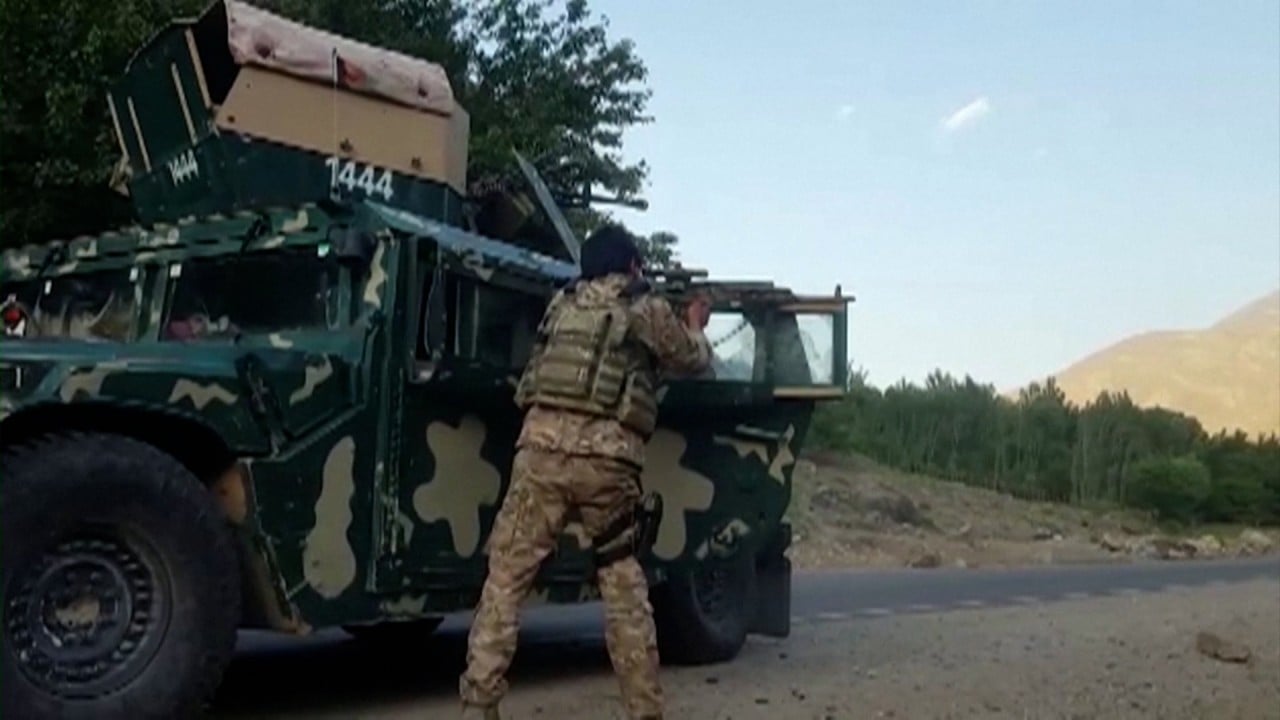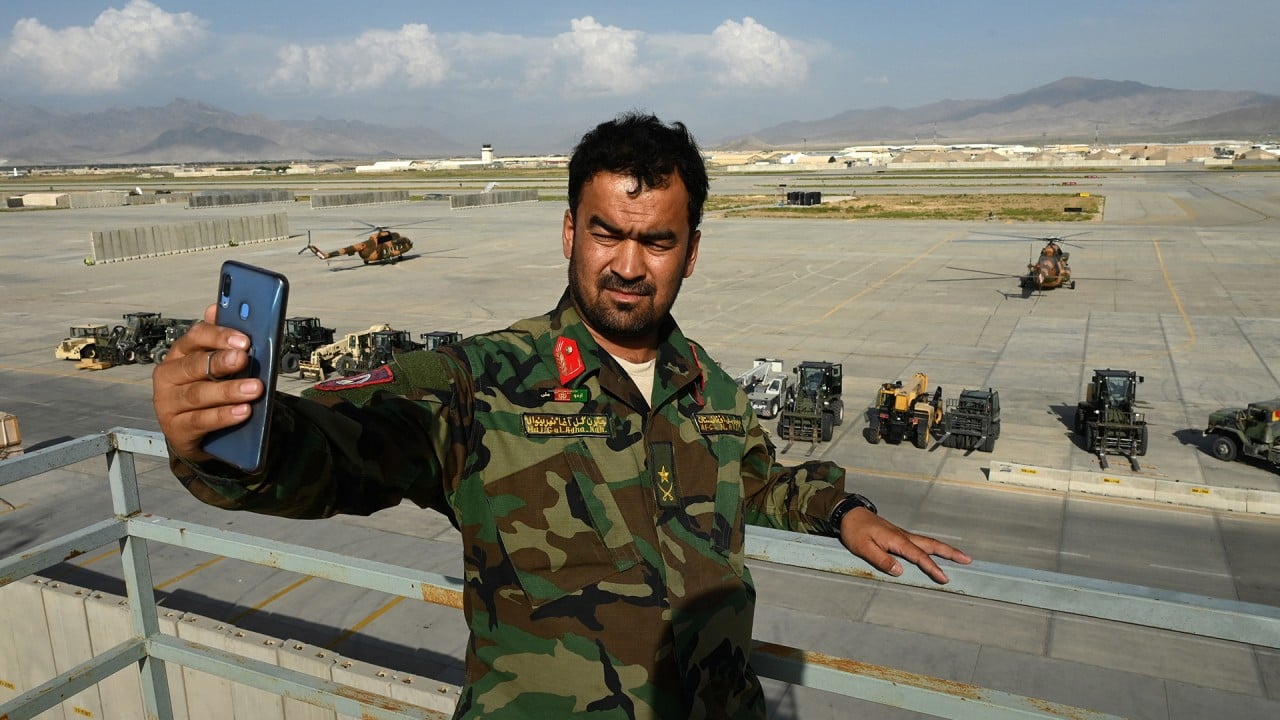
China looks for ways to help fill void in Afghanistan without overcommitting itself
- Foreign Minister Wang Yi will visit neighbouring states before a meeting of the Shanghai Cooperation Organisation, which Beijing wants to play a bigger role
- China wants to work with neighbouring countries to ensure peace and stability after the withdrawal of US troops
China is looking for ways to help fill the power vacuum left by the United States in Afghanistan but is unlikely to send in peacekeeping troops, foreign policy observers said ahead of Foreign Minister Wang Yi’s three-country tour of Central Asia.
This week Wang will visit three of China’s central Asian neighbours – Turkmenistan, Tajikistan and Uzbekistan – and attend a meeting of the foreign ministers of the Shanghai Cooperation Organisation, a Eurasian regional security pact, and the SCO-Afghanistan contact group.
Wang’s visit next week is aimed at “promoting peace and stability in Afghanistan”, foreign ministry spokesman Wang Wenbin said on Friday.
“The development of the situation in Afghanistan is at a critical juncture. As close neighbours of Afghanistan, the SCO member states can play a positive role in promoting the peace, reconciliation and reconstruction process in Afghanistan,” he said in Beijing.
Taliban says 85 per cent of Afghan territory is under its control
Du Youkang, a former diplomat and international affairs researcher at Fudan University in Shanghai, pointed out that all three countries Wang Yi was visiting shared borders with Afghanistan and had significant immigrant populations from the war-torn country, adding that the hurried US withdrawal had left an unprecedented new security challenge for the SCO.
Du suggested that Wang’s meetings with the SCO and the SCO-Afghan contact group could help set up a framework for the Afghan government and the Taliban to conduct peace talks or, after peace was achieved, draw up a plan for economic cooperation with its neighbours.
“All the countries in the SCO surrounding Afghanistan are developing countries, but China is the only one that has resources to make big investments so it’s very possible they will push this in the future,” he said.
The SCO, which was founded in June 2001 and led by Russia and China, has increasingly become Beijing’s major instrument to address security issues in central Asia. Afghanistan became an SCO observer state in 2012.

03:56
Civil war looms in Afghanistan as UK ends military mission, but Beijing extends a hand
However, the SCO is unlikely to be able to fill the “security gap” left by the US as it has no military force, and is plagued by internal disputes, according to Elizabeth Wishnick, a professor of political science at Montclair State University in New Jersey.
“The SCO has really been on the sidelines of the conflict in Afghanistan, as individual countries have taken their own initiatives to resolve it,” Wishnick said.
To combat this, China established a quadrilateral counterterror mechanism with the Kabul government as well as Pakistan and Tajikistan in 2016.
China a ‘welcome friend’ in Afghanistan: Taliban spokesman
“Multilateral is fine, but China’s core national interest is in this sphere,” he said, adding that the SCO had little influence over the Taliban.
Raffaello Pantucci, a senior fellow at the S Rajaratnam School of International Studies in Singapore, also said that while Afghanistan had always been an important item on the SCO’s agenda, the multilateral organisation had no tangible achievements when it came to improving the country’s security situation.
“What’s significant and interesting is that you can see the Chinese are very behind the idea of getting Afghanistan more involved [in the SCO], and getting the SCO to do more on Afghanistan, but they haven’t been able to get the rest of the institution to move in that direction,” he said.
“All the countries [in the SCO] have slightly different interests and desires to engage with Afghanistan and for Central Asians frankly, and the Uzbeks in particular, [they] always saw this as a bilateral thing, whereas China always wanted to multilateralise everything.”

02:43
US troops leave Afghanistan’s Bagram airbase without notifying new Afghan commander
He added: “From the Chinese perspective you want to be seen to be doing something, [the SCO] is another structure where you can be seen doing something.”
But it was highly unlikely China would dispatch peacekeeping troops to Afghanistan, he said.
“I’ve heard too many experts, security officials and Ministry of Foreign Affairs people in China referring to Afghanistan as the ‘graveyard of empires’ … I just don’t see the commitment from Beijing on that,” said Pantucci, who has a forthcoming book on China’s relations with Central Asia.


